In a world dominated by tech giants focused on rapid product cycles and profit maximization, Fairphone stands out as a social enterprise committed to ethical sourcing, fair labor conditions, and environmental sustainability.
This case study delves into Fairphone's unique business model, exploring its products, competitive landscape, marketing strategies, social impact, and the challenges and opportunities it faces.
The History of Fairphone
Fairphone was founded in 2013 by Bas van Abel, a Dutch social entrepreneur. The idea for Fairphone came to Bas Van Abel while he was working on a project in the Democratic Republic of Congo.
He was struck by the prevalence of conflict minerals, which are used in the production of electronics, and the devastating impact they had on local communities.
This experience led him to explore ways to create a more ethical and sustainable smartphone.
The first Fairphone was launched in 2013, and it was designed to be a smartphone that was not only environmentally friendly but also socially responsible.
The company aimed to create a phone that would last longer, be easier to repair, and use fair trade and conflict-free materials.
Interview with Bas Van Abel, Founder of Fairphone
Fairphone's Business Model
Fairphone operates under a distinctive business model that prioritizes ethical and sustainable practices throughout its value chain.
Unlike traditional smartphone manufacturers who prioritize profit and rapid product cycles, Fairphone focuses on creating durable, repairable, and long-lasting devices, minimizing electronic waste and promoting responsible consumption.
This focus on longevity and repairability directly challenges the industry's prevailing model of planned obsolescence, where devices are designed to be replaced frequently.
Furthermore, Fairphone takes a holistic approach to sustainability, considering every aspect of the production and use of their phones, from the sourcing of raw materials to the end-of-life management of their devices.
Key elements of Fairphone's business model include:
- Ethical Sourcing: Fairphone actively sources materials from conflict-free mines and supports fair trade principles. They prioritize recycled materials and aim to improve working conditions in the electronics industry.
- Modular Design: Fairphone's smartphones are designed to be modular, allowing users to easily repair and upgrade their devices. This extends the phone's lifespan and reduces the environmental impact associated with frequent replacements.
- Long-lasting Design: Fairphone focuses on durability and longevity, encouraging users to keep their phones for longer.
- Transparency and Traceability: Fairphone provides detailed information about its supply chain, allowing consumers to understand the origin of materials and the manufacturing processes involved.
- Social Impact: Fairphone actively engages in initiatives to improve working conditions, promote fair wages, and empower workers in the electronics industry.
Ethical Sourcing and Labor Practices
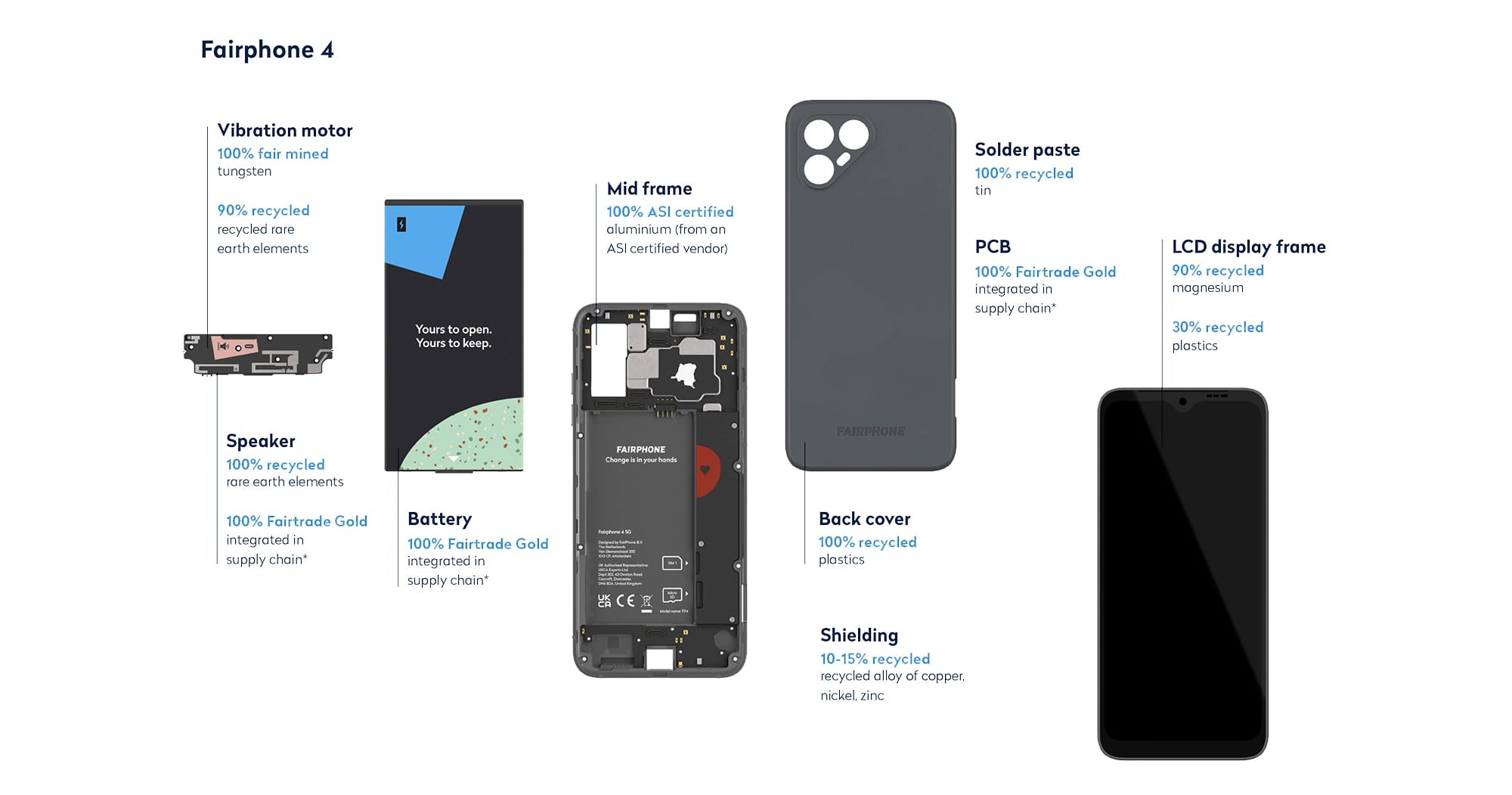
Fairphone's commitment to ethical sourcing goes beyond simply avoiding conflict minerals. They actively seek to improve working conditions and promote fair labor practices throughout their supply chain. This includes:
- Sourcing Conflict-Free Minerals: Fairphone has been using conflict-free tin and tantalum from the Democratic Republic of Congo since 2013 and focuses on procuring conflict-free tungsten from Rwanda. They were also the first smartphone company to incorporate Fairtrade gold into their supply chain, setting an important precedent for the industry.
- Promoting Responsible Mining: Fairphone works with partners in Uganda to improve working conditions in artisanal mine sites, preventing child labor and creating a transparent and traceable supply chain for gold.
- Using Recycled Materials: Fairphone actively seeks to increase the use of recycled materials in their phones. For example, they prioritize recycled copper and are working to incorporate more recycled plastics.
- Fair Sourcing Policy: Fairphone's Fair Sourcing Policy guides their approach to sourcing components and materials, ensuring they address social and environmental issues in the supply chain. This policy is based on four main principles:
- Traceability: Understanding the origin of materials and the social and environmental conditions under which they are produced.
- Risk mitigation: Identifying and mitigating potential negative impacts on human rights and the environment.
- Impact creation: Driving positive change in the supply chain by working with suppliers to improve their social and environmental performance.
- Collaboration: Working with stakeholders across the industry to promote responsible sourcing practices.
Fairphone's Products
Fairphone primarily offers smartphones and related accessories. Their latest model, the Fairphone 5, boasts impressive features while adhering to the company's core values.
It is built with over 70% fair or recycled focus materials, including Fairtrade gold, recycled aluminum, tin, and plastics.
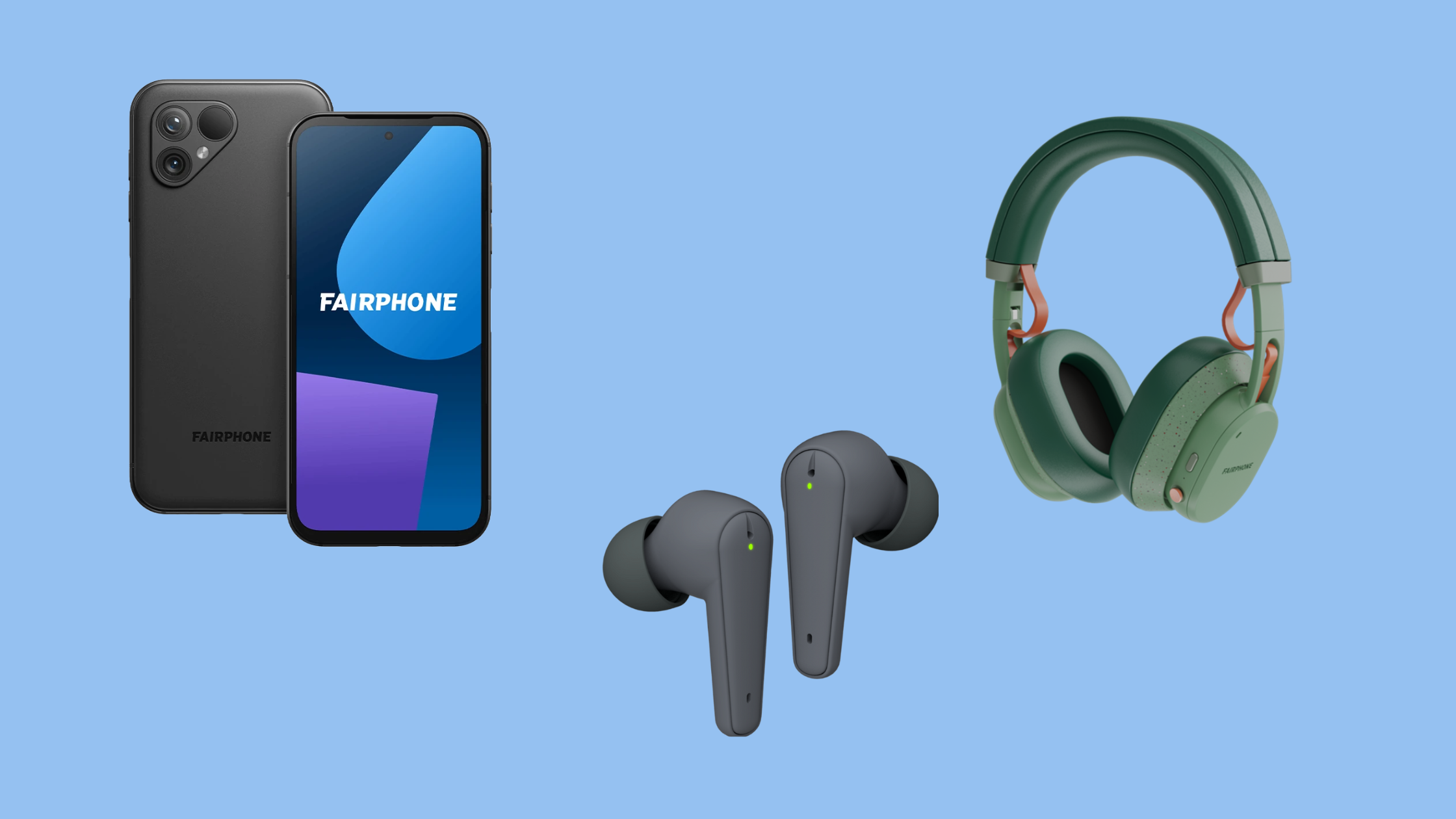
Key features of Fairphone 5 include:
- 5G and Wi-Fi 6E connectivity: Enabling fast internet speeds and seamless connectivity.
- 4,200 mAh user-replaceable battery: A removable battery allows users to easily replace it when needed, extending the phone's lifespan and reducing e-waste. This is further supported by Fairphone's claim that the battery will maintain at least 80% of its original capacity for more than 500 full charge cycles.
- 128 GB storage and 6 GB RAM or 256 GB storage and 8 GB RAM: Providing ample storage and memory for smooth performance.
- Dual SIM/MicroSD slot: Offering flexibility for users with multiple phone numbers or storage needs.
- Improved camera with two 50-megapixel sensors, 4K video: Capturing high-quality photos and videos.
- OLED display with a 90 Hertz refresh rate: Providing a vibrant and responsive visual experience.
- IP55 rating for dust and water resistance: Protecting the phone from everyday wear and tear.
- Software support until 2031: Ensuring long-term security and functionality.
- Recycled Materials: The Fairphone 5 uses 100% post-consumer recycled plastics in the back cover and incorporates recycled plastics in other parts, reaching 75% recycled plastics by weight in total. It also utilizes 100% recycled rare earth elements in the speakers and 90% in the vibration motors.
- 5-year warranty and long-term software support: Fairphone offers a 5-year warranty and promises long-term support for software updates and spare parts, further extending the phone's lifespan.
- Battery specifications: The Fairphone 5 has a Li-Ion 4200 mAh, removable battery with 30W wired charging, allowing for 50% charge in 20 minutes.
Fairphone's commitment to modular design can be traced back to the Fairphone 2, which featured an inventive modular architecture that allowed users to easily open and repair the most commonly broken parts.
This design philosophy, combined with the use of high-quality components and a protective case, aimed to extend the phone's lifespan.
Beyond smartphones, Fairphone also offers earbuds, Fairbuds XL headphones, which feature eight replaceable parts, an IP54 rating for dust and water resistance, and are made from 49% recycled materials.
They have a perfect 10 repairability score according to iFixit, highlighting Fairphone's commitment to repairability across its product range.
Fairphone also offers a range of accessories, including cases, screen protectors, and spare parts for easy repairs.
Pricing
Fairphone's commitment to ethical sourcing and sustainable practices influences its pricing strategy. While their phones are generally more expensive than comparable models from mainstream brands, the higher price reflects the true cost of responsible manufacturing.
The Fairphone 5 has a price range of €549 to €629, depending on the configuration. Other Fairphone models and accessories are available at various price points, catering to different budgets.
Target Market
Fairphone targets environmentally conscious consumers who prioritize ethical values and sustainability. Their target market includes individuals who are willing to pay a premium for a product that aligns with their values and contributes to a fairer and more sustainable world.
This includes "green consumers" who are actively seeking environmentally friendly products.
Fairphone's marketing materials and website appeal to a diverse audience, including millennials, professionals, and families.
Competitive Landscape
Fairphone operates in a competitive market dominated by established smartphone manufacturers like Apple and Samsung. However, Fairphone differentiates itself by focusing on ethical and sustainable practices, appealing to a niche market of conscious consumers.
While other companies may be incorporating some sustainable practices, Fairphone's competitive advantage lies in its holistic approach, combining ethical sourcing, fair labor practices, and environmental considerations throughout its entire value chain.
Fairphone's main competitors include:
- Shiftphones: Shiftphone offers modular and sustainable smartphones with a focus on data privacy and security. They use recycled materials and offer a long-term support commitment.
- Teracube: A US-based company focused on durable and repairable smartphones with a four-year warranty and a commitment to environmental sustainability. They use recycled materials and plant a tree for every phone sold.
Marketing and Branding Strategy
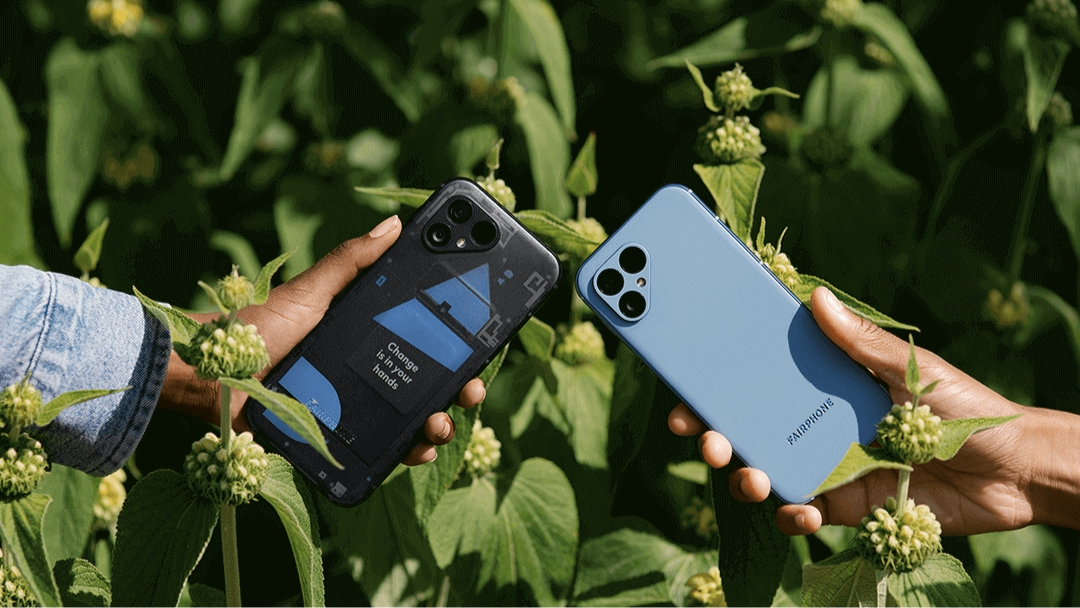
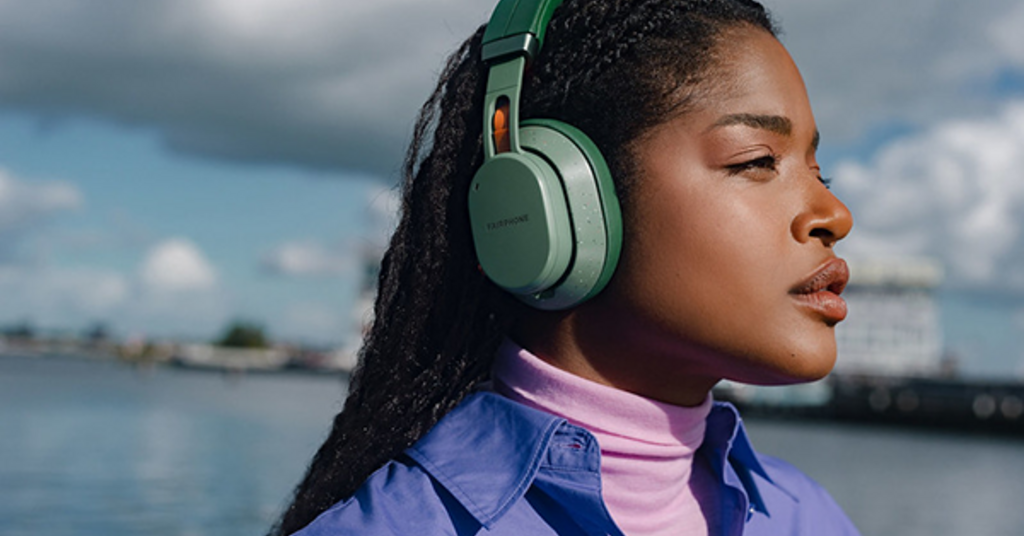
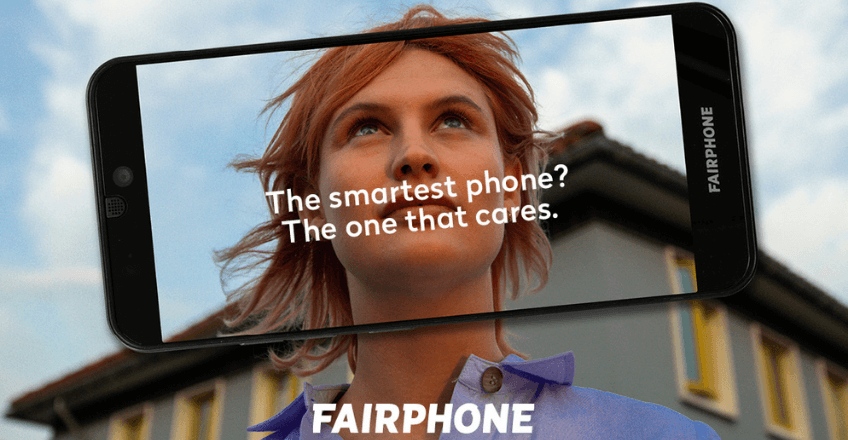
Fairphone's marketing and branding strategy centers around its core values of fairness, sustainability, and transparency.
They communicate their commitment to ethical practices through their website, social media channels, and marketing campaigns.
Fairphone's messaging emphasizes:
- The importance of ethical sourcing and fair labor conditions.
- The environmental benefits of durable and repairable devices.
- The positive social impact of supporting a company that prioritizes people and the planet.
Fairphone actively engages with its community through online forums and social media, fostering a sense of shared values and promoting a movement for fairer electronics.
Social Impact
Fairphone's social impact extends beyond its products. The company actively works to improve working conditions in the electronics industry, promote fair wages, and empower workers.
Their impact goes beyond their own products by influencing the wider electronics industry towards more sustainable practices.
Fairphone's initiatives include:
- Partnering with suppliers to improve labor standards and working conditions.
- Supporting projects that promote worker representation and a living wage.
- Raising awareness about the social and environmental challenges in the electronics industry.
- Promoting product longevity: A Fairphone lasts 5.5 years on average, significantly longer than the average smartphone lifespan of 2.7 years. This contributes to reducing e-waste and the environmental impact associated with manufacturing new devices.
- E-waste neutrality: Fairphone is e-waste neutral, meaning that for every phone sold, they collect an equivalent amount of e-waste for recycling or reuse.
- Employee well-being: Fairphone is committed to creating a positive and supportive work environment for its employees. They have achieved a low employee turnover rate (1.15% in 2020) and a positive Employer Net Promoter Score.
Challenges and Opportunities
Despite its successes, Fairphone faces challenges and opportunities:
Challenges:
- Higher Price Point: Fairphone's phones are generally more expensive than comparable models from mainstream brands, which may deter some consumers.
- Scaling Production: Maintaining ethical and sustainable practices while scaling production to meet growing demand can be challenging.
- Competition: Fairphone faces increasing competition from established brands that are incorporating sustainable practices into their products.
- Supply Chain Complexity: Managing a complex and transparent supply chain can be challenging, especially when sourcing materials from conflict-free zones.
Opportunities:
- Growing demand for sustainable and ethical products: Consumer awareness of social and environmental issues is increasing, creating a growing market for ethical and sustainable products like Fairphone.
- Potential for partnerships and collaborations with other ethical brands: Fairphone can explore partnerships with other sustainable brands to expand its reach and offer complementary products and services.
- Expansion into new markets and product categories: Fairphone can expand its market reach by entering new geographical markets and developing new product categories that align with its values.
- Technological advancements in sustainable materials and manufacturing processes: Advancements in sustainable materials and manufacturing technologies can further enhance Fairphone's ability to create environmentally friendly products.
Awards and Recognition
Fairphone has received numerous awards and recognition for its sustainability and ethical practices, including:
- German Sustainability Award Design 2022: This award recognizes Fairphone's commitment to sustainable design and its contribution to a circular economy. (Source:)
- Leader in the Ethical Consumer's "Ethical Smartphone Guide": Ethical Consumer, a UK-based research and campaigning organization, consistently ranks Fairphone as a leader in its ethical smartphone guide. (Source:)
- B Corp Certification: Fairphone is a certified B Corporation, meeting high standards of social and environmental performance, accountability, and transparency. (Source:)
These accolades highlight Fairphone's commitment to social and environmental responsibility.
SWOT Analysis
| Strengths | Weaknesses |
|---|---|
| Strong commitment to ethical sourcing and fair labor practices | Higher price point compared to mainstream brands |
| Transparent and traceable supply chain | Limited brand awareness and market reach |
| Modular design for easy repair and upgrades | Challenges in scaling production while maintaining ethical standards |
| Long-term software support | Dependence on a niche market of conscious consumers |
| Positive social and environmental impact |
| Opportunities | Threats |
|---|---|
| Growing demand for sustainable and ethical products | Increasing competition from established brands incorporating sustainable practices |
| Potential for partnerships and collaborations with other ethical brands | Potential for negative publicity related to supply chain challenges |
| Expansion into new markets and product categories | Economic downturn affecting consumer spending on premium products |
| Technological advancements in sustainable materials and manufacturing processes |
Conclusion
Fairphone's success demonstrates that a business can prioritize ethical values and sustainability while achieving commercial viability.
By focusing on durable, repairable devices, transparent sourcing, and fair labor practices, Fairphone has carved a niche in the competitive smartphone market and inspired a movement for fairer electronics.
Fairphone's success exemplifies the growing trend of ethical consumerism and the shift towards a circular economy, where products are designed for longevity and resource efficiency.
While challenges remain, Fairphone's commitment to its mission and its innovative approach to sustainability position it as a leader in the ethical tech industry.
As consumers become increasingly aware of the social and environmental impact of their purchasing decisions, Fairphone's business model offers a compelling alternative to the status quo.






